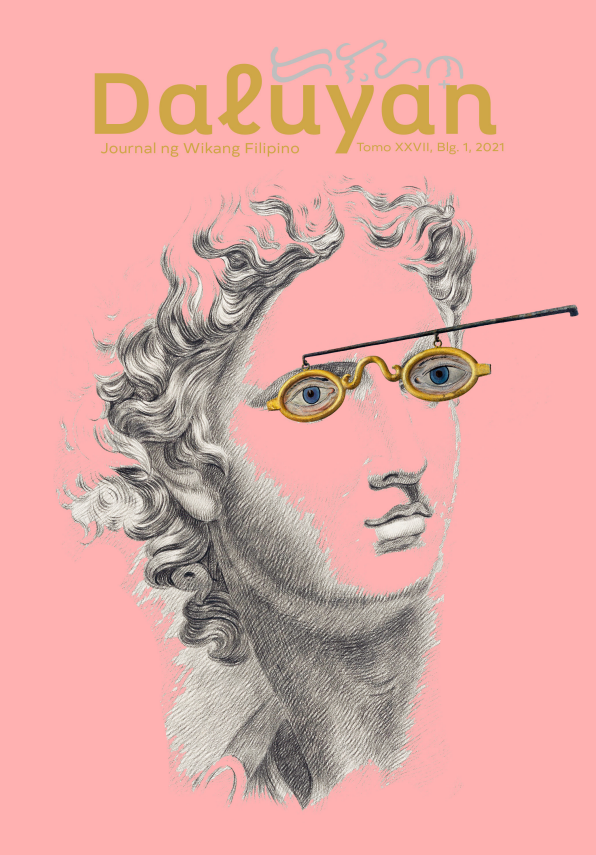Neoliberalismo sa Edukasyon: Ang CMO blg. 20 s.2013 Bilang anti-Filipinong GE
Abstract
Abstrak
Sa halip na isulong ng lalong mataas na edukasyon ang bisyon na pagsilbihin ang mga programa at kurikulum nito ayon sa pangangailangan ng bansa, ang ipinatupad na reporma sa edukasyon mula 2011 hanggang 2016 ay nagpatuloy at nagpatunay na tumutugon lamang ang Pilipinas sa global na demand sa lakas-paggawa. Sinuri sa papel na ito ang pagpapatupad sa CMO 20 s.2013 na nakaugnay sa K-12 bilang mga neoliberal na polisiya sa edukasyon. Inilatag ang programa sa edukasyon sa mga taong ito bilang konteksto sa pagsusuri sa CMO 20 at mga pahayag ng CHED gamit ang critical discourse analysis ni Fairclough. Napatunayan sa pag-aaral na may neoliberal na katangian ang mga pahayag at wika ng CHED kaya hindi ito makapagtataguyod ng pag-aaral at paggamit ng wikang Filipino sa kolehiyo.
Mga Susing Salita: neoliberalismo, CHED Memorandum blg. 20 s.2013, critical discourse analysis, general education, wikang Filipino sa kolehiyo
Abstract
Instead of a vision for higher education to have the programs and curricula serve the needs of the country, education reforms from 2011 to 2016 only continued and confirmed that the Philippines only responds to the global demand for labor force. This paper analyzed the implementation of CMO 20 s.2013 that is closely linked to K to 12 as neoliberal policies in education. Education programs were used as context in analyzing CMO 20 and CHED’s statements using Fairclough’s critical discourse analysis. The study confirmed that CHED’s statements and its language perpetuate and promote neoliberalism which prove that it will not promote the Filipino language use and studies in college.
Keywords: neoliberalism, CHED Memorandum no. 20 s.2013, critical discourse analysis, general education, Filipino language in college


